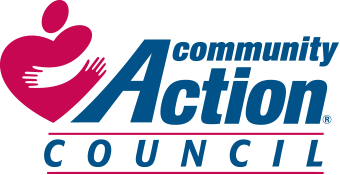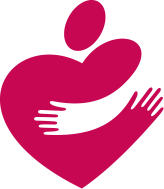The Council doesn’t provide services to “poor people.” Instead, we talk about people in poverty, people living in poverty, or people with low income.
What’s the difference? Isn’t that just a lot of extra words to say the same thing? Why does it matter?
Here are five reasons we choose not to use the term “poor people”:
1. “Poor people” suggests that poverty is a permanent condition. To directly assign the label poor to some people leads us to think of it as an intrinsic, stable, long-term characteristic. The truth is that over the course of a lifetime, an individual person can move into and out of poverty. One 2015 study found that over 60 percent of the U.S. population will experience poverty for at least one year between the ages of 25 and 60; over 40 percent will experience extreme poverty for at least one year. The same study found, however, that only 5.6 percent of the U.S. population in this age group experiences poverty for ten consecutive years, and only 1.5 percent experiences extreme poverty for ten consecutive years.[1]
What this data tells us is that anyone can fall into poverty, given the right conditions. Likewise, it is possible and even likely that a person now living in poverty will eventually move out of it. By fostering the illusion that “poor” describes a stable, constant subset of the population, the term “poor people” makes it too easy to lose sight of these important truths.
2. “Poor people” suggests that poverty is only some people’s problem. Poverty is the problem of an entire society. As social beings, all of us are profoundly interconnected through economy, culture, and physical environment. This means that poverty affects all of us, not just those who are currently experiencing it. When a portion of the population is unable to meet their basic needs and reach their full potential, we all miss out on the better world they could have helped build through their contributions. And when parents lack sufficient resources to create the best possible environments for their children to develop, the whole cycle threatens to continue in the next generation.
Meanwhile, those of us who are not living in poverty have a constant awareness of the possibility of falling into poverty at any time. Every day, we make major decisions—about jobs, homes, marriages, or children—based on our knowledge of this possibility and our need to manage risk. For some, the fear of poverty itself can become a significant psychological burden. Poverty powerfully shapes our lives even if it never specifically claims us.
This means we all have a stake in issues surrounding poverty. That is key, because the causes and the solutions of poverty exist at the level of the society as a whole. Public policy decisions, from the federal down to the local level, have a major impact on how quickly people fall into poverty, on the quality of life of those living in poverty, and on how easy or difficult it can be to escape poverty. A term like “poor people” lets us forget that poverty can be a result of complex, systemic, institutional factors that are much bigger than any one person.
3. “Poor people” indicates that poverty is the most important thing about a given person. Every person living in poverty is a human individual, first and foremost. No-one can be defined, or even well understood, simply by their current wealth or income status. First of all, as we’ve seen, anyone’s financial situation is liable to fluctuate dramatically over time. But more importantly, while poverty does have a real and devastating impact on one’s opportunities for growth, a person’s fundamental worth and potential is never a function of external material circumstances. Poverty cannot be addressed effectively unless we honor the transcendent value of each person living in poverty as a human being with unique strengths and resources.
4. “Poor people” invites us to visualize a certain type of person that characteristically lives in poverty. Human beings are expert at dividing ourselves into groups and drawing lines between those groups based on perceived differences. Once we begin, even fleetingly, to imagine a stable group of people known as “poor people”—whether we personally place ourselves in that group or not—it’s all too likely that we will then begin groping for other defining characteristics to attach to that population. This sometimes leads us to indulge in unexamined stereotypes, or to look for ways to “explain” poverty based solely on personal traits. None of this allows us to investigate the realities of poverty with a clear and open mind, as is necessary for generating effective solutions.
5. Lastly, “Poor people” allows us to be complacent about the continued existence of poverty. “Poor people,” after all, represents a concrete reality: a body of real people, who exist among us in the here and now. We can’t easily imagine a society where “poor people” don’t exist, that still has integrity and coherence. We can take the existence of “poor people” for granted as just another inescapable element of modern life.
To speak of poverty, on the other hand, can serve as a reminder that it is an unnecessary human condition. It reminds us that we can, and must, separate the “poor” from the “people.” Poverty is then more easily seen as an enemy that all society—even, and especially, including those of us who happen to live in poverty—can confront in common.
Taking time to be thoughtful about our language isn’t always about avoiding offense. It’s also about learning to check our assumptions and keep sight of our priorities.
[1] Rank, Mark R., and Thomas A. Hirschl. “The Likelihood of Experiencing Relative Poverty over the Life Course.” July 22, 2015. http://journals.plos.org/plosone/article?id=10.1371/journal.pone.0133513

